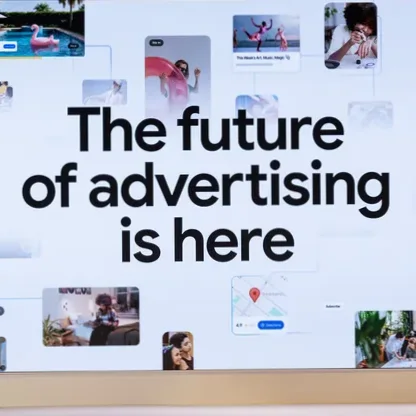 Last week, someone emailed me a link to a YouTube video that was recorded at a TED conference. In it, Eli Pariser makes a presentation about “Filter Bubbles” in which he demonstrates how our online behavior causes information providers to “filter” what we’re shown, with the result that we tend to see and hear only what they perceive we want to see and hear. He presents a compelling case and it’s worth the investment of nine minutes to watch. https://www.youtube.com/watch?v=B8ofWFx525s
Last week, someone emailed me a link to a YouTube video that was recorded at a TED conference. In it, Eli Pariser makes a presentation about “Filter Bubbles” in which he demonstrates how our online behavior causes information providers to “filter” what we’re shown, with the result that we tend to see and hear only what they perceive we want to see and hear. He presents a compelling case and it’s worth the investment of nine minutes to watch. https://www.youtube.com/watch?v=B8ofWFx525s
Eli, you may recall, is the former executive director of MoveOn.org, which means that I probably don’t share most of his political views, though I do understand his concern about the rapid growth of personalized news search results. However, I’m not so worried about personalized advertising and search results.
Recently, Time Magazine started showing up in my mailbox each week, which was puzzling because I knew I hadn’t subscribed. Then came Rolling Stone. Nobody has claimed credit, although I’ve made some discreet inquiries to several acquaintances and friends to try to identify my anonymous benefactor.
My hypothesis is that someone who knows me is trying to burst a self-imposed Filter Bubble, which admittedly has been a fairly steady diet of Fox News and National Review, although I also confess to being a regular, long-time listener of NPR. And you know what? I’m reading Time and Rolling Stone and finding them interesting. I don’t always agree with what they say. In fact, I sometimes vehemently disagree. But overall, I think it’s beneficial to examine both sides of an issue before drawing one’s own conclusions. If Time and Rolling Stone make me a more well-rounded individual, then I’m all for it. I may draw the line at MoveOn.org though.
So what does all of this have to do with search engine optimization? SEO has always been about showing up at the top of the Google, Bing and Yahoo Search Engine Results Pages for keywords that might bring you customers or, at least, a receptive audience. But whose search results are we talking about? If everyone sees a different SERP, then what value is there in monthly Ranking Reports to measure the progress of your SEO efforts?
For the time being, we can still find ways to see relatively unfiltered search results. At Market Vantage, we have access to anonymous proxies so that when we want to do research, we can pop up with a different location and IP address. I use Firefox for my daily activities that require logins, like Facebook, Gmail, and managing Pay-Per-Click accounts. In addition, I’ve configured Internet Explorer in such a way that it deletes all cookies, history, logins, etc. each time it exits. I use IE primarily for spot-checking keyword results on Google or Bing.
Which brings up another question. How many searches for a keyword are motivated by someone who is seeking information or hoping to buy something, versus checking their website’s search position for that keyword? Rank checking surely constitutes a significant number of searches, which pollutes the search frequency data presented by the tools we use for keyword research.
At the end of the day, the ultimate effectiveness of your SEO effort should be gauged, to the degree that it can be, by its impact on your organization’s bottom line. Meanwhile, we should all be on our guard about the invisible Internet filter that’s trying to put each of us into our own, happy little bubble. Whatever your personal beliefs, we can probably all benefit from a dose of Rolling Stone or National Review from time to time.




